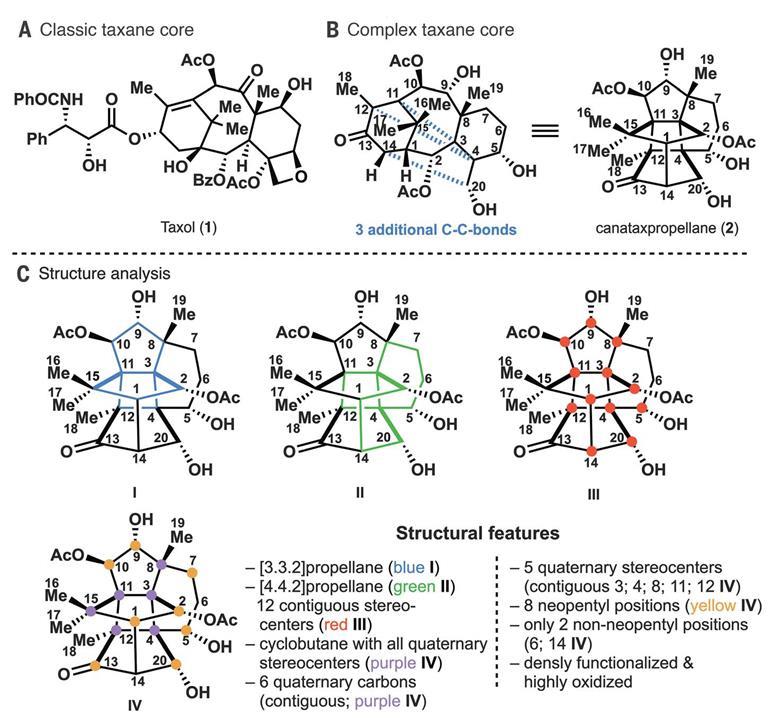A couple of weeks ago, a colleague sent me a link with a note: «In case it inspires you…». The article in question had a provocative title: Chemists complete synthesis of molecule ‘at the limits of complexity’. It turns out, the research team led by Tanja Gaich (University of Konstanz, Austria) has undertaken the synthesis of canataxpropellane, a structure with kind of a Lovecraft sense to it, whose mere sight could drive any organic chemist insane. It belongs to the great family of taxanes, whose best-known example is undoubtedly anticancer drug paclitaxel (marketed as Taxol®).
Indeed, canataxpropellane is a very difficult target, even in the golden age of organic chemistry that has witnessed the synthesis of molecules with dozens of chiral centers or routes with more than 100 steps, all true milestones in organic synthesis. It presents a congested structure, with numerous adjacent chiral centers and tensioned rings. Gaich’s group has been successful and canataxpropellane can thus be added to the list of molecules that the human race knows how to make. The total synthesis of this type of molecules takes years, making up for the PhD dissertation of many chemists.
The expression used in the title “at the limits of complexity” was coined by Phil Baran (Scripps Research, La Jolla, US). His statement may sound arrogant but, truth be told, canataxpropellane is an awfully difficult molecule to synthesize. Luckily, we have at hand the perfect antidote for hubris. Medicinal chemists know this too well: often enough, we find rather small, simple molecules whose synthesis continues to elude us. A constant cure of humility for us all.
The most interesting thing for me in this article, besides the huge challenges in the chemistry, is whether canataxpropellane lies actually at the limits of complexity. Could it be more complex and more difficult to prepare?
I’m afraid the answer is yes. In fact, it’s one of those things that have always fascinated me about organic chemistry. No matter how large or complex an organic compound is, it can always be taken further by lengthening a chain, making a ring larger, inserting an oxygen between a carbon and a hydrogen… The number of organic molecules is literally infinite; therefore, I do not believe that synthetic complexity can have limits per se. The truth is, there will always be bigger challenges.
Jacobo Cruces, CSO
Total synthesis of the complex taxane diterpene canataxpropellane. Science, 2020, 367, pp. 676–681. See: 10.1126/science.aay9173


